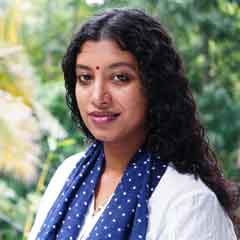From gender neutrality to SC orders, Kerala school curriculum teaches new lessons now

Mail This Article
When an image of a man scraping coconut in a kitchen featured in one of the newly-revised textbooks in Kerala state syllabus, it triggered animated discussions. Now it is time to brace for even more gender neutral views as the State Council of Educational Research and Training, (SCERT), Kerala, is set to begin printing the second part of the school textbooks.
The second part of the Class 9 Social Science textbooks will include topics which would provide basic awareness on gender spectrum, a concept that goes beyond the traditional notion of seeing gender as binary and accommodating a range of gender identities.
SCERT director Jayaprakash R K said that apart from introducing the concept of gender diversity, the syllabus has also included landmark orders of the Supreme Court on gender inclusion. He, however, did not mention the specific orders included in the textbook. "Printing of textbooks will begin next week and it will be distributed by October," he said. SCERT is receiving accolades from within and outside the state after images of the newly-revised textbooks for Class 1, 3, 5, 7 and 9 were released in this academic year. Sharing on social media an illustration from the Malayalam textbook of Class III on school reopening day on June 1, state Education Minister V Sivankutty set discussions for the gender division of labour in households. In the image, the man could be seen scraping coconut, while his wife is engaged in preparation of food. A daughter could be seen lending a helping hand in the kitchen. Except a toddler, everyone in the family could be seen sharing the domestic chores. Another chapter from an English textbook of the same class too became a discussion on social media where a father was portrayed as the one cooking a favourite snack for his daughter.
Soon social media began discussions on other topics in the revised textbooks, including images of wheelchair-bound children and gender neutral costumes.
Inclusion of a chapter on social reformer Ayyankali, who worked for the uplift of oppressed communities, in the Sanskrit textbook of Class 7 and preamble of Constitution in the beginning of all textbooks won praise from various quarters. Jayaprakash said the preparation to include gender neutral concepts in textbooks began in 2022 when the SCERT conducted two national-level workshops as part of revising the curriculum. "The previous revision of textbooks happened in 2013. So the topics in the textbooks were at least a decade old. Gender auditing of the textbooks was done as part of the workshop to identify the areas which needed revision. Illustrators were given orientation classes regarding the change of topics. Apart from division of labour, images and topics on themes which break stereotypical gender roles were included in the revised textbook. There are portions imparting leadership skills and encouraging girls to take up sports like football,” he said.

Gender roles in textbooks
The portrayal of skewed gender roles in school textbooks had come under severe criticism in the past. K Rema, retired school teacher and former vice-president of Kerala Sasthra Sahithya Parishad (KSSP), said the revised curriculum was a refreshing change. "It could have been a bit more progressive, I would say. This is 2024,” she commented.
Rema, who had conducted a gender audit of school textbooks for the Ashok Mitra commission appointed by KSSP in 1999, remembers an English textbook of Class 5. “The chapter was meant to teach the present continuous tense. So the sentences used were ‘Mrs Menon is cooking, Mrs Menon is washing’ etc. However, when it came to the portrayal of male, it was ‘Mr Menon is reading’. As per this, all household chores were the responsibility of Mrs Menon,” she said.
Rema said the one notable change happened when CPM leader MA Baby became state Education Minister in 2006. “I specifically remember one chapter in the revised textbook of Class VI that year. In that chapter ‘Appuvinte oru divasam’, all family members were depicted as those sharing domestic chores without any gender bias. “In that story, Appu’s mother was a panchayat member. In one portion where the mother’s friend visits her, the father prepares tea for them. And when the mother and her friend go out, Appu and his father will wash the dish. However, these portions were removed when the textbook was revised by the succeeding government,” she said.
Rema pointed out that gender sensitisation of teachers was equally important as textbook revision. “It is important to know whether the presence of men in the kitchen is presented as merely ‘helping’ women or as division of labour,” she said.
Jayaprakash clarified that gender sensitisation classes were imparted to teachers during the summer vacation before introducing the revised textbooks. Textbooks for Class 2, 4, 6, 9 and 10 will be revised in the next academic year.

Controversies galore
In December 2022, the LDF Government made a dramatic U-turn on the move to introduce gender neutral uniforms in schools in Kerala after it drew flak from certain Muslim outfits. The Indian Union Muslim League, which is part of the United Democratic Front, objected to the changes, including curriculum revision. IUML MLA N Samsudheen, in the Assembly, said that the concept of gender neutrality would lead to sexual anarchy. Another IUML MLA MK Muneer said the Left government was ‘smuggling in anti-religious thoughts’ into schools with the introduction of the concept of gender neutrality.
Not just Muslim outfits, Vellapally Natesan, general secretary of the Sree Narayana Dharma Paripalana (SNDP) too came out against the alleged move to allow girls and boys to sit together in classrooms. Natesan said it was unacceptable in Indian culture. With the introduction of concepts of gender diversity, the curriculum revision is expected to trigger another round of controversy in Kerala.


